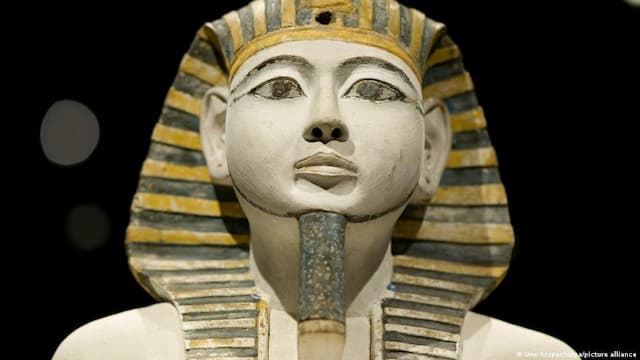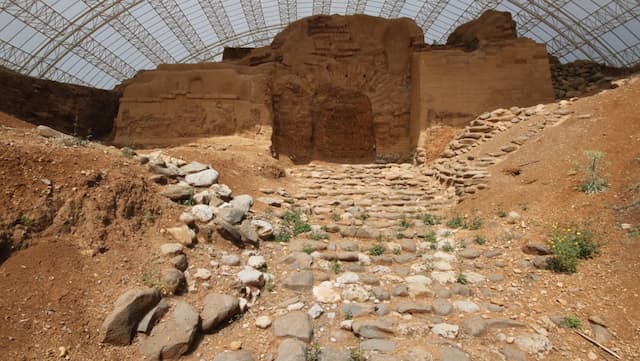How will the nations respond? (Genesis 14:21-24)
So what is the significance of Abram’s meeting with two Canaanite kings, Melchizedek and Bera?
What just happened is truly amazing. Invaders from Shinar crushed Canaan, taking its loot and people into exile—including Lot. With a little band, Abram attacked the allied invaders and released the captives. Clearly Abram has been given the favour and wisdom of the God he serves. Abram has begun to bring the blessing of YHWH to the other families of the earth, just as YHWH promised (12:3).
But will the Canaanites recognize the God of Abram? Or are they interested only in re-establishing their own power? That’s a really important question: the entire Abram project is designed to show the nations the blessing of YHWH’s reign. If they can’t see it when it stares them in the face, how with God’s kingdom project work out?
The answer is that some kings do, and some don’t. We’re told of the reaction of two Canaanite kings, and their responses are certainly a contrast.
The first to meet Abram as he returns is the king of Sodom (14:17). We were already told that “the people of Sodom were wicked, great sinners against YHWH.” By avoiding his personal name (Bera according to 14:2), the narrator makes him sound like the king of sinners.
That immediately sets up a contrast with the other king and his people. Melchizedek (right-ruling king) leads Salem (Peace-city), and mediates God Most High to his people. He recognizes the blessing of the Most High God on Abram. He gives honour to Abram and to Abram’s God.
Melchizedek provides food for Abram, his fighters, and the captives they released. Supplying bread and water for all these hungry people would have been a generous act, but Melchizedek provides wine, turning the feast into a victory celebration. Melchizedek really does recognize the hand of Abram’s God, and he honours Abram as the servant of the God who brought this blessing to them all.
The encounter with Melchizedek must have been a great encouragement to Abram. This is the response we will be looking for as the Scriptural narrative unfolds. Ultimately the kings of the nations need to respond as Melchizedek has done. If they can see YHWH through Abram and his descendants, if they can acknowledge the God who is Most High over the events of history and the rulers of the earth, the kingdom of God can be re-established across the whole earth. The Abram project will succeed. Melchizedek is the first example of a king acknowledging YHWH’s authority.
Unfortunately, that’s not the whole story. The other king in the story responds to the same events in a very different way. The king of Sodom gives no honour to Abram and sees nothing of Abram’s God in this victory. All he sees is an opportunity to regain power after his defeat. Political power is power over people, so he negotiates like this:
Genesis 14:21 (NIV)
The king of Sodom said to Abram, “Give me the people and keep the goods for yourself.”
What a contrast! “Give me …!” is the attitude of the king of the wicked. Abram distances himself from this king who is preoccupied with his own power and refuses to see the ruler of heaven and earth:
Genesis 14:22–23 (NIV)
22 But Abram said to the king of Sodom, “With raised hand I have sworn an oath to the Lord, God Most High, Creator of heaven and earth, 23 that I will accept nothing belonging to you, not even a thread or the strap of a sandal, so that you will never be able to say, ‘I made Abram rich.’
As the story of the kingdom of God unfolds, there will be right-ruling-kings who recognize the Most High God and honour him. But the kings-of-the-wicked will refuse to submit to God Most High, consumed by self-interest in their own power. The goal of God’s kingdom project is to bring the nations back under his governance. Abram’s family will reveal earth’s ruler to the nations, but the obedience of the nations does not automatically follow.
What others are saying
Eugene H. Merrill, Everlasting Dominion (Nashville: B&H, 2006), Chapter 5 (electronic edition):
The invasion of the cities of the Dead Sea plains by the kings of the East is a clearer example of God’s rule through a man, in this case Abram once again (Gen. 14:1–24). Having defeated these cities, the foreign kings returned to their homelands taking Abram’s nephew Lot among other captives. Though Abram was hopelessly outnumbered, he pursued the invaders as far north as Hobah, triumphed over them in battle, and retrieved the stolen goods and persons. Of greatest interest and theological significance is the encounter Abram had with a priest of El Elyon, Melchizedek by name. This man of God proceeded to utter a blessing upon Abram, one that singled out Abram as a special servant of God and that drew attention to the Most High as Creator of all and Ruler of the nations: “Abram is blessed by God Most High, Creator of heaven and earth, and give praise to God Most High, who has handed over your enemies to you” (Gen. 14:19–20). The connection between the kingship of the Lord and its exercise through Abram could not be clearer.
Gordon J. Wenham, Genesis 1–15, Word Biblical Commentary (Dallas, TX: Word, 1998), 321:
The attitudes of the two kings stand in marked contrast. Melchizedek, for whom Abram has done but little, greets him warmly, laying on a banquet for him. He further blesses Abram in the name of the high god of Canaan, EI-Elyon. Here the promise of blessing upon Abram and those who bless him (12:1–3) starts to be fulfilled. By implication Melchizedek, who blesses Abram, is himself blessed. Indeed, Abram shows his benevolence toward Melchizedek by giving him a tenth of the booty. But the king of Sodom, by his cool, if not surly, reception of Abram, shows that he disdains Abram, an attitude that is both unjustified, considering Abram’s rescue of the people of Sodom, and, in the light of 12:3, a response that will evoke the divine curse. Yet despite Sodom’s coolness, Abram treats him generously, returning to him all the people and booty that the Eastern kings had carried off, a trait already shown in his treatment of Lot (13:8–12).
Read Genesis 14:17-24.
[previous]
[next]
Seeking to understand Jesus in the terms he chose to describe himself: son of man (his identity), and kingdom of God (his mission). Riverview College Dean
View all posts by Allen Browne











